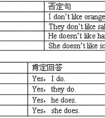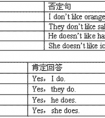先通读下面的短文,然后根据短文内容和所给首字母,在空格内填入一个适当的单词。使短文完整。所填单词必须在答题卡标有题号的横线上完整写出。(本大题共10空,每空0.5分,-九年级英语
题文
| 先通读下面的短文,然后根据短文内容和所给首字母,在空格内填入一个适当的单词。使短文完整。所填单词必须在答题卡标有题号的横线上完整写出。(本大题共10空,每空0.5分,共5分) Do you like listening to radio? For some people, listening to radio programs has become a part of their d__小题1:lives. How did this start? Radio began as ship-to-ship and ship-to-land c__小题2:. In the early 1900s, several people showed that radio could do more than that. Dr. Lee De Forest, is w____小题3: known as the father of radio. He made the first p___小题4: radio broadcast. As a fan of opera, De Forest wanted to s__小题5: the musical entertainment into homes. His first try was on January 13,1910, from the Metropolitan Opera House (大都会歌剧院) in New York City. However, the signal was not good enough. Only a few listening stations and a___小题6:in the harbor (港湾) area were able to hear this broadcast. Although there was a lot to do to improve, it s__小题7:what radio could do. Look at the world around us. Radio broadcasts are e___小题8:. Information now travels at the speed of l____小题9:. Music, news, traffic reports and speeches from world leaders are all on the radio. Can you imagine a world w___小题10:radio? |
答案
小题1:daily 小题2:connect 小题3:well 小题4:personal 小题5:send 小题6:apartment 小题7:save 小题8:everywhere 小题9:light 小题10:without |
试题分析:短文大意:你喜欢听收音机吗?对于一些人来说,收听广播节目已经成为日常生活的一部分。这是如何开始的?本文做了简要介绍。 小题1:句意:对于一些人来说,收听广播节目已经成为日常生活的一部分。故填写daily。 小题2:句意:广播电台开始作为船和船、船和陆地的连接。故填写connect。 小题3:句意:李博士德森林被著称为无线电之父。故填写well。 小题4:句意:他创办了第一个个人广播。故填写personal。 小题5:句意:作为一个歌剧迷,德林想把音乐娱乐送到家。故填写send。 小题6:句意:只有少数的听力站和港口区域的公寓能够听到广播。故填写apartment。 小题7:句意:节省无线电能做什么。故填写save。 小题8:句意:无线电广播无处不在。故填写everywhere。 小题9:句意:现在的信息以光速传播。故填写light。 小题10:句意:你能想象没有无线电的世界吗?故填写without。 |
据专家权威分析,试题“先通读下面的短文,然后根据短文内容和所给首字母,在空格内填入..”主要考查你对 实义动词,实义动词的单数第三人称形式,动词短语 等考点的理解。关于这些考点的“档案”如下:
实义动词实义动词的单数第三人称形式动词短语
考点名称:实义动词
- 实意动词:
即行为动词,表示动作的动词。实义动词与系动词是相对的,能独立用作谓语。
它分为及物动词和不及物动词两种:
及物动词是指后面要求有直接宾语的动词;
不及物动词指后面不需要跟宾语的动词。 实意动词使用方法:
及物动词
后面必须跟宾语意义才完整的实义动词,叫做及物动词(transitive verb)。如:
I believe that the committee will consider our suggestion.我相信委员会将会考虑我们的建议。
“How long can I keep the book ?”Harry asked.哈里问:“这本书我可以借多久?”
Dr. Bethune set us a good example. 白求恩大夫给我们树立了好榜样。
Crude oil contains many useful substances.原油含有许多有用的物质。
不及物动词
本身意义完整后面不须跟宾语的实义动词,叫做不及物动词(intransitive verb)。如:
Birds fly.鸟会飞。
It happened in June 1932.这件事发生于一九三二年六月。
My watch stopped.我的表停了。
She spoke at the meeting yesterday evening. 她在昨天晚上的会上发了言。
兼作及物动词和不及物动词
英语里有不少实义动词可以兼作及物动词和不及物动词。这样的动词又有两种不同的情况
a)兼作及物动词和不及物动词时,意义不变。试比较:
Shall I begin at once?我可以立刻开始吗?(begin作不及物动词)
She began working as a librarian after she left school.她毕业后当图书馆管理员。(began作及物动词)
When did they leave Chicago?他们是什么时候离开芝加哥的?(leave 作及物动词)
They left last week. 他们是上周离开的。(left 作不及物动词)
b)兼作及物动词和不及物动词时,有时意义不尽相同。如:
Wash your hands before meals.饭前要洗手。
Does this cloth wash well? 这布经得起洗吗?- 英汉实意动词用法比较:
与汉语的比较,有时英语动词的及物和不及物的用法,与汉语的用法不一样,请注意下列两种情况:
a)有的动词在英语里只能用作不及物动词,而汉语则可用作及物动词,如arrive到达,agree同意,listen听。英语里这些动词后面常接介词。如:
We arrived at the railway station at noon.
我们于中午到达火车站。(at不能省去)
(比较:We reached the railway station at noon.)
Everybody listened to the lecture with great interest.
每个人都很有兴趣地听讲课。(to不可省去)
(比较:We all heard the lecture.)
Do they agree to the plan?他们同意这个计划吗?(to不可省去)
b)有的动词在英语里能用作及物动词,而在汉语里则不能用作及物动词,如serve为…服务。
Our children are taught to serve the people wholeheartedly.
我们的儿童被教以全心全意为人民服务
用于be动词之后,实义动词之前。 实意动词的用法:
肯定句:
主语+动词过去式+其它
否定句:
主语+助动词didn‘t+动词原型+其他
一般过去式:
Did+主语+动词原型+其他
考点名称:实义动词的单数第三人称形式
在一般现在时的肯定句中,当主语为非第三人称单数时,谓语动词用原形;
当主语为第三人称单数时,谓语动词用单数第三人称形式。- 实义动词的一般现在时的单数第三人称形式遵从“s,es, ies”六字母规则。如下表所示:


![How much does it ______ to fly from Yancheng to Hainan Island?[ ]A. cost B. payC. spend D. take-七年级英语](http://www.00-edu.com/d/file/ks/4/2/shiyidongci/2020-01-05/small7dcf2f05998de63e10cc3629787031c81578210087.png)

![He always _____TV in the evening. He _____ listening to the radio. [ ]A. watch, don't like B. watches, doesn't like C. watching, don't like D. watch, do-七年级英语](http://www.00-edu.com/d/file/ks/4/2/shiyidongci/2020-01-05/small45d599b4a60b84e61cec210bfbf051f51578214524.png)
![I'd rather ___ to the Mcdonald's Restaurant because I like to listen to quiet music.[ ]A. to go B. going C. go D. went-八年级英语](http://www.00-edu.com/d/file/ks/4/2/shiyidongci/2020-01-05/small1767bba1727fef2c035c53dcbd9bc20e1578209517.png)
